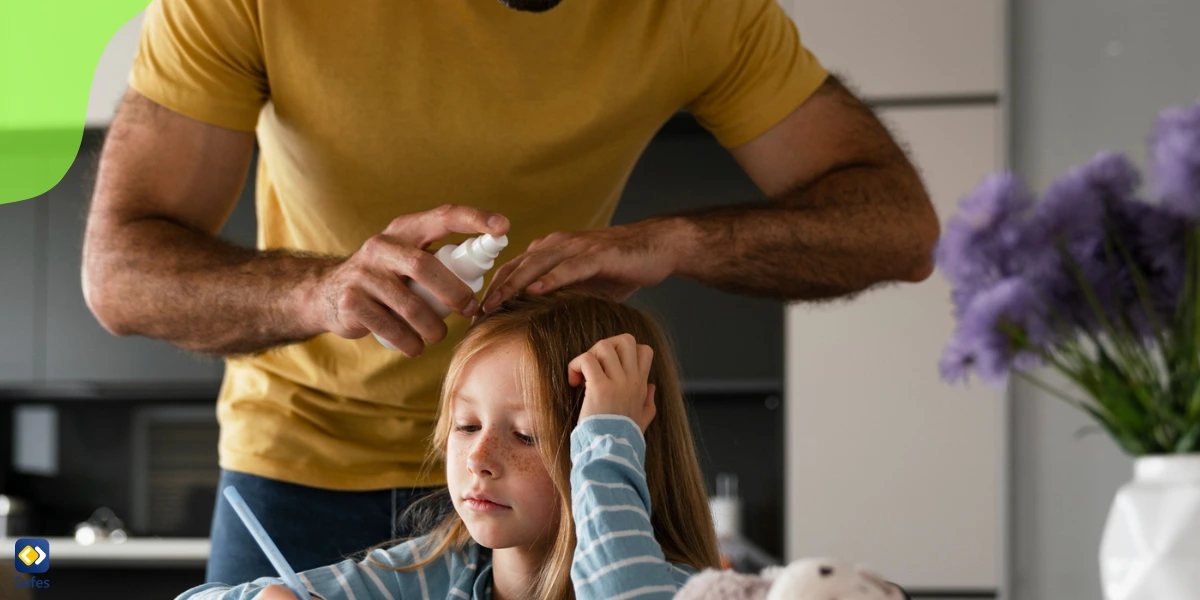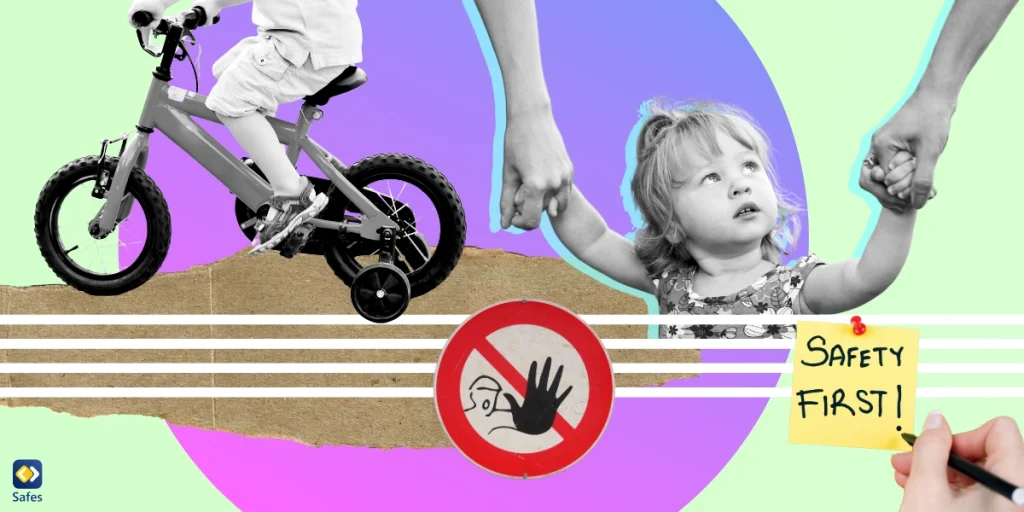The journey into fatherhood marks a pivotal transition, for both mothers and fathers, and is full of stress. This exploration is for both men and women embarking on the shared endeavor of understanding how to be a good father in today’s world. It delves into the evolving dynamics of fatherhood and sheds light on how modern dads can contribute to nurturing, supportive family environments. By embracing the responsibilities and joys of fatherhood, this guide aims to empower parents to foster deeper connections within their families.
Download and Start Your Free Trial of the Safes Parental Control App
Fathers’ Role in the Family
Fathers play a crucial role in the family, far beyond the outdated notion of being the sole breadwinner. Today’s fathers are supportive partners, loving parents, and even stay-at-home dads. Their involvement benefits not just children but the entire family dynamic. Research shows that fathers’ active participation in parenting and household duties leads to happier relationships.
A Blueprint for Relationships
The role of a father, whether a biological father, stepparent, adoptive parent, or father figure, is foundational in shaping a child’s view of relationships. Early interactions with father figures serve as a model for future relationships. Positive, healthy relationships with their father figures are linked to higher levels of self-esteem and better relational abilities in children. Conversely, negative experiences can lead to challenges in forming healthy relationships later in life.
Beyond Presence
Fathers’ influence on children’s well-being is both direct and indirect. Directly, fathers who are sensitive and supportive enhance their children’s social skills and academic performance. Indirectly, a father’s relationship with the child’s mother and his involvement in co-parenting can significantly affect the child’s emotional and social adjustment.

Evolving Fatherhood
The role of fathers has evolved, with modern dads taking an active part in caregiving and parenting. This shift is supported by evidence showing the positive effects of father involvement on children’s development. Fathers contribute uniquely to their children’s physical, cognitive, emotional, and social well-being. Supportive social policies, such as paternal leave, can further enhance fathers’ engagement in their children’s lives.
A Broader Perspective
Understanding fatherhood in today’s world means recognizing its diversity. Don’t forget that families come in all forms. What matters most is the quality of care, love, and guidance a father figure provides.
So, in summary, why do children need nurturing fathers? Paternal involvement is invaluable in child development. Fathers contribute uniquely to children’s social, emotional, and cognitive growth. Their involvement fosters a sense of security and confidence in children, laying a foundation for healthy emotional development.
A Closer Look
A groundbreaking research in the United States, involving 24 papers from 16 longitudinal studies and approximately 22,300 datasets reveal the profound impact of father involvement from newborns to young adults. This comprehensive analysis highlights the undeniable benefits of paternal engagement on children’s development. Fathers significantly influence educational achievements, reduce behavioral issues, and enhance cognitive skills, with effects varying among different demographics, including socioeconomic status and race. This pivotal study not only quantifies the power of paternal presence but also illuminates the diverse ways in which dads shape their children’s futures, underscoring the multifaceted role of fatherhood in nurturing well-rounded individuals.
Understanding the Impact of Father Absence or Negativity
The absence of a father or the presence of a negative father figure has profound effects on children’s lives.
Physical and Mental Development
Children growing up without the involvement of their fathers often face significant challenges, including reduced life expectancy linked to physical health issues and diminished cognitive abilities. For instance, children from father-absent homes are more likely to drop out of high school, reflecting broader academic struggles that start early and persist through their schooling years.
Social and Emotional Consequences
The absence of a father can lead to a range of behavioral and social difficulties. Children without a father are at a higher risk of developing behavioral problems, experiencing social adjustment challenges, and facing difficulties with friendships. They may adopt intimidating personas to mask their fears and unhappiness. Furthermore, fatherless children are more likely to engage in delinquency and are significantly overrepresented among youth in prison.

The Risk of Substance Abuse
Another significant effect of not having a father is substance abuse. The absence of a father figure correlates with higher rates of smoking, alcohol consumption, and drug use among children and adolescents.
Academic and Future Relationship Impacts
Educationally, children in father-absent households often perform poorly. This can be seen in lower grade point averages and increased likelihood of dropping out of high school. These children are also more likely to have trouble forming stable relationships in adulthood, further illustrating the far-reaching impact of father absence on a child’s life.
How to Be a Good Father
Being a good father involves a spectrum of qualities and actions that support your child’s physical, emotional, mental, and social development. Here’s a list that depicts the essence of what it means to be an effective and loving father:
- Spend Quality Time Together: Your presence is a powerful message of love and priority to your child. Engage in activities that both of you enjoy and use this time to build a strong, emotional bond.
- Discipline with Love and Positivity: Discipline should be about teaching and guiding, not punishing. Set clear, reasonable limits and enforce them with kindness and understanding.
- Be a Role Model: Children learn by example. Exhibit traits like honesty, integrity, kindness, and responsibility. Your behavior will shape their understanding of right and wrong and influence their character.
- Take Care of Yourself: Good fatherhood also means taking care of your own physical, mental, emotional, and spiritual health. A healthy and happy dad is more capable of providing the support and love his children need.
- Share Responsibilities: Don’t categorize tasks as “mom” or “dad” duties. Be involved in all aspects of caregiving and household responsibilities. This models equality and teamwork for your children.
- Show Affection: Don’t shy away from expressing love. Hugs, words of affirmation, and quality time spent together are all crucial for your child’s emotional development.
- Be Patient and Listen: Good fathers are patient and make efforts to listen to their children’s thoughts and feelings. This fosters a safe environment where your child feels valued and understood.
- Respect the Other Parent: Whether you’re in a relationship or not, showing respect to your child’s other parent is crucial. It teaches your child about mutual respect and healthy relationships.
- Be Involved from the Start: Engage with your child as early as possible. Early involvement strengthens the father-child bond and sends a clear message that you care deeply about them.
- Educate and Guide: Fathers are important teachers. Use everyday situations as learning opportunities to teach your children valuable life lessons and skills.
- Encourage Independence: While it’s important to be protective, also allow your children the freedom to explore, make mistakes, and learn from them. This encourages independence and confidence.
- Limit Screen Time: Encourage activities that promote imagination and physical activity over passive screen time. This supports healthier mental and physical development.
Embracing these aspects of responsibilities of fatherhood underscores the importance of fathers in children’s lives. Being an involved father, who is supportive and mindful in parenting, significantly contributes to the well-being and development of your children.
Elevating Fatherhood with Safes
We all know that being a dad means you’ve got to play the tough guy sometimes, but always with a big heart, right? And let’s be real, one of the biggest battles we face today is trying to peel those little eyes away from phone screens to actually spend some quality time together. Not always an easy feat, especially when basic parental controls on Android or iPhone parental controls just don’t cut it. But guess what? There’s something out there for you: Safes.
Safes is a thoughtfully designed parental control app that supports you in managing your children’s screen time and app usage. It enables you to set sensible limits on screen exposure and designate times for specific activities, ensuring you have more quality time to spend with your children. Moreover, Safes allows you to establish bedtime routines that foster moments for stories or that special goodnight kiss.
So, all you caring dads out there, why not take Safes for a spin and start our free trial? And it’s available on both iOS and Android. Let’s make those moments with our kids count!
Final Thoughts
The intricate roles of both father and mother are fundamental to the fabric of family life, each contributing uniquely to the emotional, social, and intellectual development of their children. Through the lens of this discussion, we’ve explored the multifaceted impact of engaged fatherhood alongside motherhood, emphasizing the importance of partnership and mutual support. As we conclude, it’s clear that the collaborative efforts of both parents are crucial in creating a nurturing environment that promotes the well-being and growth of every family member.
Your Child’s Online Safety Starts Here
Every parent today needs a solution to manage screen time and keep their child safe online.
Without the right tools, digital risks and excessive screen time can impact children's well-being. Safes helps parents set healthy boundaries, monitor activity, and protect kids from online dangers—all with an easy-to-use app.
Take control of your child’s digital world. Learn more about Safes or download the app to start your free trial today!




